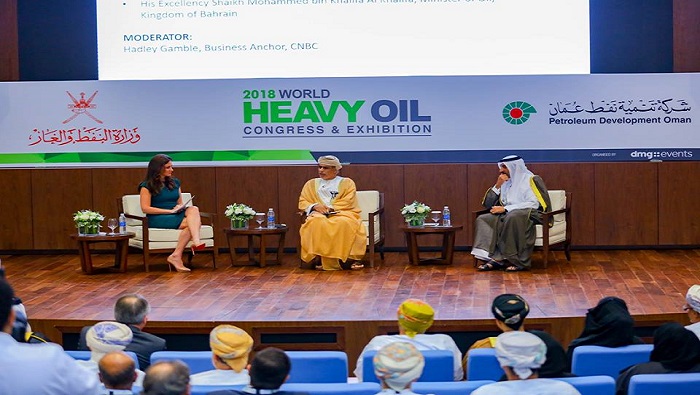
Muscat: Oil companies from across the world will come to Muscat on 2 September 2019 to take part in the World Heavy Oil Congress and Exhibition to examine how they can collaborate globally and take decisions on the future of heavy oil, in tandem with government organisations.
The congress will also look at harnessing new technologies and innovations that will lead to safer extraction of oil. This year’s edition will feature a two-day strategic conference and a three-day technical conference, alongside a three-day international exhibition, boosting 120 expert speakers, 52 participating countries, 30 conference sessions, and more than 500 delegates.
Held under the auspices of the Ministry of Oil and Gas, and co-hosted by Petroleum Development Oman, the event will take place at Oman Convention and Exhibition Centre. The highly anticipated event is also supported by the Ministry of Tourism, with Occidental Oman returning as the gold sponsor alongside JP Global Digital, and Maha Energy as silver sponsors.
All oil and gas professionals are welcome to attend and can register online or onsite during the conference each day between 8.30 am and 5.30 pm from 2-4 September. More information and registration procedures are detailed online at www.worldheavyoilcongress.com.
Held under the auspices of the Ministry of Oil and Gas in the Sultanate of Oman, the World Heavy Oil Congress and Exhibition delivers a global platform for the entire heavy oil value chain to convene, connect, and engage in conversation. The event offers heavy oil professionals unparalleled opportunity for knowledge exchange through a three-day technical conference on topics from upstream, midstream, and downstream heavy oil operations, and heavy oil research and technology.
According to the American Geosciences Institute, “heavy oil and bitumen are forms of crude oil that are more viscous (thicker) and dense. The largest crude oil deposits in the world are heavy oil, extra-heavy oil, and bitumen oil sands – also called tar sands – in Venezuela and Canada. The U.S. also has heavy oil and oil sands, mostly in California, Alaska, and Utah. Globally, almost 1.1 trillion barrels of heavy oil, extra-heavy oil, and natural bitumen may be technically recoverable, compared to 950 billion barrels of light crude oil.”
In this context, a statement from fossil fuel company Halliburton added, “Over millions of years, heavy oil was formed as a result of the hydrocarbon deposits being degraded by algae, which resulted in the loss of its lighter hydrocarbon fractions—with the heavier fractions remaining.”